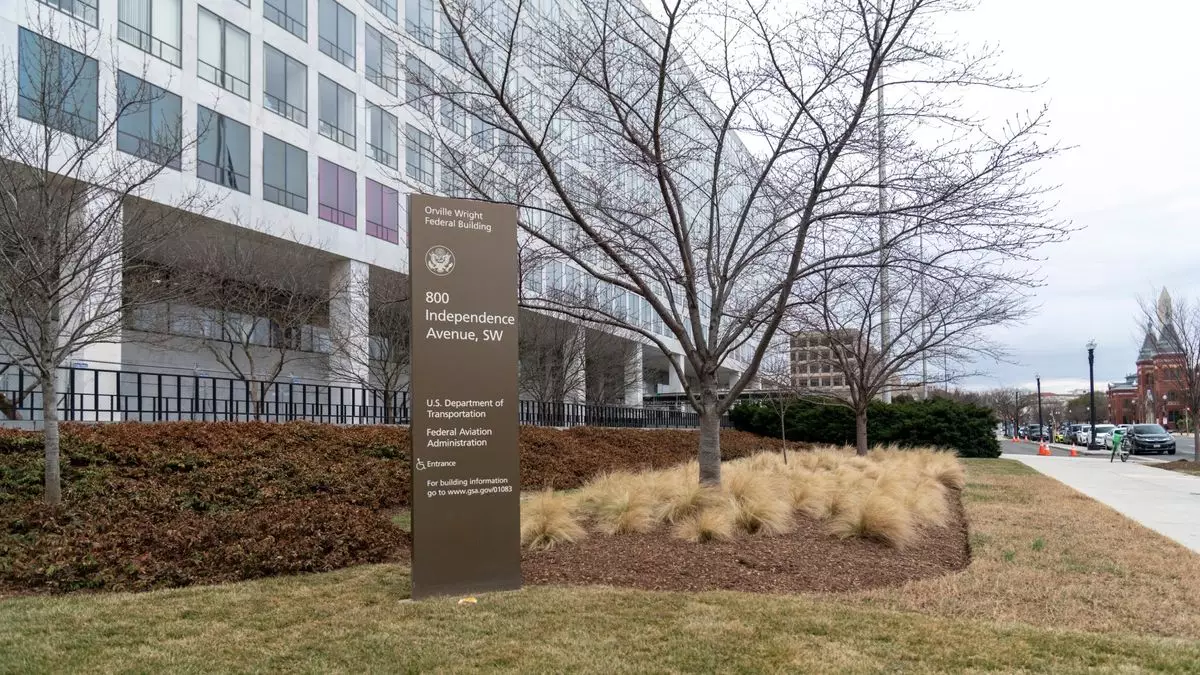The modernization of the United States air traffic communications system is currently under scrutiny as new technological advancements and corporate interests converge on this critical sector. Notably, a company owned by Elon Musk, Starlink, is emerging as a potentially significant player in this initiative at a time when federal contracts are shifting. This development raises important questions regarding ethics, corporate competition, and the safety implications for air travel across the nation.
The Changing Landscape of Air Traffic Communication
The Federal Aviation Administration (FAA) is tasked with managing an aging air traffic control network that is rapidly becoming inadequate in the face of modern demands. Reports indicate that Starlink, an innovative satellite communications service, has begun the installation of equipment at FAA facilities, drawing attention toward a potential takeover of a lucrative $2 billion contract previously held by Verizon. This development suggests a serious reevaluation of the systems used to ensure the safety and efficiency of U.S. air travel.
Elon Musk has publicly asserted the shortcomings of the existing Verizon system, emphasizing the urgent need for modernization to mitigate risks posed to air travelers. By leveraging Starlink’s advanced satellite capabilities, Musk aims to provide a cutting-edge alternative to a dwindling legacy communication infrastructure. However, such ambitions do not come without significant skepticism and concern.
The intersection of Musk’s various roles—business tycoon, political adviser, and technology innovator—raises ethical alarms. Critics argue that the limited transparency surrounding the process offers the potential for conflicts of interest that could compromise true accountability in federal contracting decisions. Jessica Tillipman, a legal expert specializing in contracting and ethics, pointed out the ambiguity surrounding Musk’s access to nonpublic information, suggesting that without clear insights, the implications of his dual roles remain concerning.
Moreover, former FAA officials have voiced apprehensions regarding the push for utilizing Starlink technology without undergoing rigorous testing and evaluation. This highlights a critical gap in the decision-making process, suggesting that the national air traffic control system could be at risk if decisions are made without comprehensive examination of the benefits and drawbacks.
The Current State of the Verizon Contract
The Verizon contract, which was awarded to modernize certain components of the FAA’s communications infrastructure, is already in its early phases with approximately $200 million invested so far. This effort primarily aimed to integrate fiber optic technology, providing a more reliable foundation for air traffic controllers. However, the FAA’s recent tests involving Starlink terminals could change the dynamics of this longstanding engagement, though Verizon has publicly claimed no knowledge of any amendments to their contract.
The agency’s decision to experiment with Starlink technologies, including terminals stationed at various locations, raises questions about the future trajectory of the FAA’s telecommunications strategy and the extent to which operational integrity could be compromised.
Starlink’s takeover of the role traditionally filled by a telecommunications giant like Verizon would represent not just a technological shift but a decision filled with implications for government procurement processes. L3 Harris, a contractor responsible for acquiring Starlink terminals, has confirmed its involvement in this initiative, but details about its partnership with SpaceX remain murky. Furthermore, the involvement of SpaceX employees with government contracts has triggered ethical evaluations, as some individuals have received waivers that allow them to engage in activities that could benefit Musk’s business interests.
This complicates the narrative, as the General Services Administration (GSA) also engages with SpaceX, offering avenues for other federal agencies to utilize their contracts, thereby potentially directing business towards Musk. Collectively, these factors underscore a growing perception that the influence of private enterprises in government decision-making is blurring lines that should remain distinct.
As the modernization of the air traffic communication system advances, the implications of integrating Starlink and its associated technologies present multifaceted challenges. While the potential benefits of a more efficient air traffic control system bear consideration, the ethical dilemmas posed by corporate influence in government operations require serious contemplation.
Ultimately, ensuring the safety of air travel must remain the foremost priority. As we examine the future of aviation communications in the U.S., it is essential that stakeholders maintain a clear focus on transparency, accountability, and the necessity of extensive testing. The intersection of business interests and government contracts must not overshadow the paramount goal of protecting the safety of millions of American air travelers.


Leave a Reply